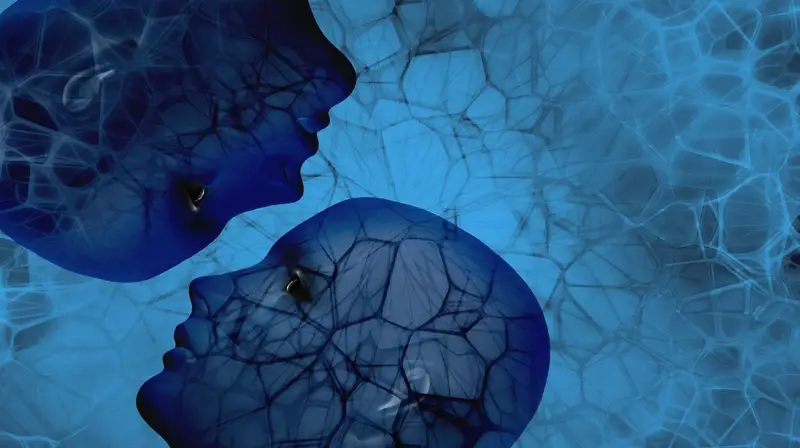In a world overflowing with information, it may seem odd that people often go out of their way not to learn something. Whether it’s skipping a follow-up doctor’s appointment or refusing to read an unsettling news article, this tendency has a name: the “Ostrich Effect.” Like the bird supposedly burying its head in the sand, we sometimes choose ignorance over knowledge when the truth feels uncomfortable.
But when does this habit begin? Children, after all, are famously curious. They bombard parents and teachers with questions about everything from the sky’s color to the meaning of life. Yet somewhere along the path to adulthood, curiosity seems to give way to selective blindness. Researchers at the University of Chicago set out to understand when and why this transformation occurs.
Curiosity Meets Avoidance
According to a study led by postdoctoral scholar Radhika Santhanagopalan, Ph.D., the shift begins earlier than many might expect. Published in Psychological Science, the research found that while 5- and 6-year-olds are still eager seekers of information, children between ages 7 and 10 begin showing clear signs of avoidance.
In one experiment, children were asked to imagine their favorite and least favorite candy. Then came the choice: Would they like to watch a video about why eating that candy was bad for their teeth? Younger children wanted to know—good or bad, the information itself was exciting. Older children, however, hesitated. They were much less interested in hearing about the downsides of their favorite treat, though they had no problem learning why their least favorite candy was bad.
This shift suggests something profound: children begin to manage their emotions by controlling the information they let in. Where curiosity once dominated, self-protection begins to take root.
Why Ignorance Feels Like Bliss
Santhanagopalan’s fascination with the Ostrich Effect grew out of a paradox. In business courses, she encountered countless examples of adults ignoring valuable information—such as avoiding bad financial news—even when it hurt them in the long run. In psychology courses, though, she saw the opposite in children, who seemed endlessly hungry for knowledge.
So why do children transform from fearless learners into strategic avoiders? The answer lies in emotions. Information is not neutral—it often carries consequences for how we feel. News about our health, abilities, or beliefs can trigger disappointment, anxiety, or shame. By avoiding knowledge, people protect themselves, at least in the short term, from negative emotions.
Interestingly, one area where children didn’t shy away was learning about their own competence. Even older children were willing to hear if they had done poorly on a test. Santhanagopalan suggests this resilience may come from the growth mindset cultivated in schools, where students are encouraged to see effort as a path to improvement rather than a fixed measure of worth.
The Emergence of Moral “Wiggle Room”
Another striking finding came when researchers looked at fairness. Humans are deeply social beings, and we like to see ourselves as fair—even when acting in self-interest. The study explored whether children, like adults, would use “moral wiggle room” to ease their conscience.
In one experiment, children chose between two buckets of stickers—some for themselves, some for a partner. They could see their own payoff clearly but had the option to learn what their partner would receive. Older children often chose not to know, effectively shielding themselves from guilt. This avoidance allowed them to maximize their own gain while preserving the comforting illusion of fairness.
In other words, ignorance became a tool: by not knowing, they could act selfishly without confronting the uncomfortable truth.
The Costs of Avoidance
Avoiding information isn’t always harmful. Sometimes, sparing ourselves from distress can be protective. Constant exposure to negative news or overwhelming details can cause stress and paralysis. Yet when avoidance becomes habitual, the costs can outweigh the benefits.
At a personal level, refusing to learn important medical information can endanger health. At a societal level, avoidance may deepen political divides or entrench rigid beliefs. When people deliberately tune out perspectives that challenge their worldview, they lose opportunities for growth, empathy, and connection.
This is why researchers stress the importance of teaching children not only to embrace curiosity but also to develop resilience when facing uncomfortable truths. Learning to tolerate uncertainty and to value difficult information could help prevent avoidance from hardening into adulthood.
How We Can Reclaim Curiosity
So, how do we break free from the Ostrich Effect? One step is awareness—recognizing when we are dodging information and asking ourselves why. Often, avoidance is a way of trading long-term benefits for short-term comfort. By reframing information as useful, even when it is unsettling, we can shift our mindset from fear to opportunity.
Another strategy is to lean into uncertainty rather than flee from it. Humans naturally crave resolution, but sometimes the healthiest response is to accept not knowing. Embracing ambiguity can reduce the urge to run from information that feels threatening.
Finally, we can take a cue from children themselves. Before avoidance sets in, kids are relentless questioners. They follow their curiosity wherever it leads, regardless of whether the answers are convenient. Reclaiming that childlike wonder—choosing to ask, listen, and learn—may be the best antidote to the Ostrich Effect.
The Bigger Picture
At its core, the Ostrich Effect reveals something deeply human. We are curious creatures, but also fragile ones. We want to know, yet we fear what knowing might mean. This push and pull shapes our decisions every day, from the personal to the political.
The research from the University of Chicago shines light on when this tension begins and how it evolves, reminding us that avoidance isn’t inevitable. With the right mindset and support, children—and adults—can learn to balance the comfort of not knowing with the growth that comes from facing the truth.
In the end, seeking knowledge is an act of courage. It means choosing growth over comfort, reality over illusion. And while burying our heads in the sand may feel safe, lifting them toward the light offers something far more powerful: the chance to learn, adapt, and thrive.
More information: Radhika Santhanagopalan et al, Becoming an Ostrich: The Development of Information Avoidance, Psychological Science (2025). DOI: 10.1177/09567976251344551






